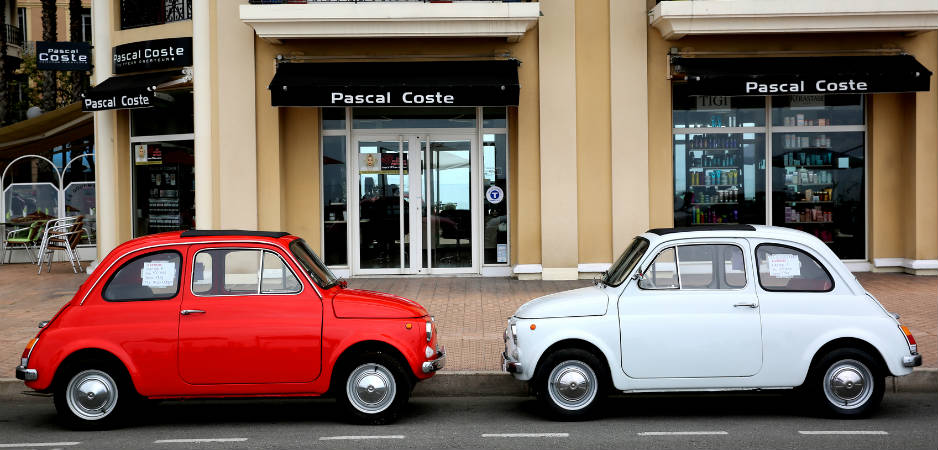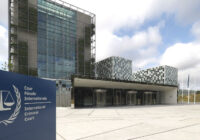In the last of a three-part series, Fasil Amdetsion looks at the evolution of Italy’s relationship with its former colonies in the Horn of Africa. Read part 1 and part 2.
Closer Italy-Africa relations can pave the way for mutually advantageous business deal-making and investments. Engagement on the economic front can proceed along a dual track: On the one hand, involving large Italian corporations, and on the other, small and medium-scale Italian enterprises. If done right, African partners can be involved in both cases.
At first blush, the largest Italian firms, mostly in the banking and insurance sectors, may not appear to have much to gain or offer from entry into African markets. But there are large Italian companies active in a variety of other sectors that can advance Africa’s developmental agenda. Some of these firms ought to be sought out and enticed to invest.
Many large Italian companies have little or no presence in Africa. Major reasons for the lack of a more significant Italian corporate presence in Africa are the misinformation and biases that continue to color perceptions about the continent. As one Italian commentator aptly put it, “In recent years, one can observe Italian business’ unawareness of the dynamics of Africa markets; perceptions are still anchored on dated impressions and prejudices of the 1980s of an Africa in decline.”
As a result, persuading major Italian companies to invest in Africa is a concerted effort. African governments frequently rely on what they believe are tried and true methods of attracting investment, like participation in trade fairs or mingling with trade missions. Such efforts may yield some results, but a more “activist” approach is warranted. Governments ought to identify companies whose investments would be synergistic with their country’s development needs, engage in individualized lobbying to attract such investment and lay out specific incentives.
What are examples of prominent large Italian firms that might be persuaded to invest?
An Obvious Choice
For many African countries that seek to establish an industrial base by developing linkages with their agricultural sector, attracting investment by agro-processing companies is an obvious choice. One such Italian company is Parmalat. One of Europe’s largest dairy processing companies, Parmalat has recovered from a 2003 bankruptcy (the biggest ever in Europe) and is now a subsidiary of French multinational Lactalis.
Parmalat remains a significant firm in its own right, with precious expertise in dairy and food processing, and revenue of €6.4 billion a year. The company is present in Europe, Australia and China. Outside of southern Africa, it has next to no presence on the African continent.
African countries desirous of bolstering their automotive sector could instead consider joint ventures with Fiat Chrysler. Buoyed by its acquisition of Chrysler, Fiat—the world’s seventh largest automaker—is now a truly global player in the automotive industry. In a bid to embrace technological innovation, it modernized its assembly lines according to the Toyota model—the industry gold standard—and recently reached an agreement with Google’s parent company, Alphabet, to build self-driving minivans.
Fiat has manufacturing or assembly plants in Italy, Brazil, Poland and Argentina, and joint ventures in Turkey, India, Serbia and China—but no presence in Africa. Fiat can potentially serve as a joint venture partner in those African countries seeking to boost nascent automobile industries. Moreover, given the still relatively small size of sub-Saharan African markets, factories based on the continent could be used for exports to the Middle East and North Africa. Peugeot is an example of this, having recently opened an assembly plant in Ethiopia.
Countries intent on developing local defense manufacturing firms may consider pursuing joint ventures with Finmeccanica (renamed Leonardo-Finmeccanica, but still better known by its old name). The 68-year-old, €13 billion a year revenue-generating aerospace and defense firm manufactures parts for the Eurofighter Typhoon jets and has developed missiles and missile defense systems. The company’s civil and defense electronics business competes against Lockheed Martin and France’s Thales.
Arguably, Finmeccanica is best known for its civil and military helicopter business. The company is currently the world’s largest helicopter maker after Airbus. Among its most recent significant sales are agreements to sell choppers to Pakistan and to build helicopters in Russia under a joint venture agreement. In the United States, Augustawestland—now a Finmeccanica subsidiary—had previously won a contract in partnership with Lockheed Martin for the manufacture of the president’s next fleet of Marine One helicopters, until the deal was scuppered due to cost overruns.
Finmeccanica’s production facilities and joint ventures are located around the world, including Poland, Turkey, Romania and Malaysia; again, no such facilities exist anywhere in sub-Saharan Africa. The advantage of nurturing government-to-government ties to spur business deal-making is readily apparent: The Italian government holds a 30% stake in Finmeccanica. And it is the Italian government that proposed Finmeccanica’s present chairman, Giovanni De Gennaro—a former police chief and undersecretary in charge of security.
Oil and Gas
Another important and already large investor in Africa is ENI. Unlike other large Italian firms, ENI has not neglected the African continent. In recent years, the company has made oil and gas discoveries in Ghana and the Democratic Republic of Congo (DRC). ENI is “doubling down” on Africa. It recently announced that it intends to invest $20 billion in Africa over the next four years, with more money devoted to power generation and renewables.
 Fair Observer provides you deep and diverse insights for free. Remember that we still have to pay for servers, website maintenance and much more. So, donate now to keep us free, fair and independent.
Fair Observer provides you deep and diverse insights for free. Remember that we still have to pay for servers, website maintenance and much more. So, donate now to keep us free, fair and independent.
Here too, cordial government-to-government relations can yield concrete benefits. The Italian government is a major shareholder in ENI, and ENI too has long had a revolving door between its business and government. A case in point: ENI’s recruitment in 2015 of Lapo Pistelli, former deputy foreign minister, to be in charge of the Africa portfolio.
Certainly, investment from large multinationals is accompanied by risks—corruption chief among them. Take Finmeccanica, for example. In the last few years, it has been implicated in corruption scandals in Panama and Algeria; and in India where the company pursued a €556 million contract for the sale of helicopters. Delhi eventually blacklisted the company, prohibiting it from engaging in any further business in India.
Perhaps no Italian company better epitomizes opacity in its operations, and intertwinement of state and corporate interests, than ENI. In their book, The Parallel State, authors Andrea Greco and Giuseppe Oddo set forth in detail the scandals and intrigues in which the corporate behemoth has been enmeshed since its creation.
Ranked 65th in the Global Fortune 500, ENI has been an extension of the state apparatus fulfilling Italian national interests, but at the same time an entity so appropriately connected as to be able to pull the right levers at the right time, often persuading Italian authorities to do its bidding. In an interview with popular Italian television journalist Lili Gruber, Italian Prime Minister Matteo Renzi dispelled the notion that ENI’s “multifarious” connections were the stuff of conspiracy theorists. In a startlingly unguarded moment, Renzi declared on national television that “ENI is a fundamental component of our energy policy, our foreign policy, our intelligence policy. By intelligence, I mean our secret services.”
Monopoly on Corruption
Italian companies investing in Africa certainly do not have a monopoly on corruption. ENI itself, for instance, failed to secure the right to develop oil fields in Uganda. It was outmaneuvered by British firm Tullow Oil, which reportedly bribed the Ugandan leadership.
Tax avoidance is another major issue. According to the Africa Progress Panel—chaired by former United Nations Secretary-General Kofi Annan—Africa loses more money to tax avoidance (especially by large multinationals, and particularly in the extractives sector) than it receives in international aid.
Corporate malfeasance, no matter how widespread, cannot preclude the pursuit of strategic investment. Corruption is par for the course in the extractives sector—or any other sector involving vast sums of money. Its elimination may be impossible, but a drastic reduction should be feasible; for instance, through improved regulatory regimes and enforcement mechanisms to deter tax evasion and prevent corruption. Of course, no regime, no matter how improved, will bear fruit unless the political backing to uphold regulations exists.
Similarly important is investment by African governments in the quality of their negotiators. Governments must not limit recruitment to those who meet some baseline standard of competence, but must also attract civil servants imbued with a sense of mission and patriotism; and having done that, provide them with adequate resources. These investments must include cultivation of knowledge in substantive areas, but also improve negotiation skills. All too often, investment in government officials’ capabilities is viewed as an unnecessary expenditure, without the realization that officials negotiate opposite highly sophisticated counterparts in the private sector with immense resources at their disposal—investment in government negotiators’ capabilities can yield significant (if somewhat unquantifiable) returns.
Thinking Small
Aside from thinking creatively about how to engage large Italian industry, African governments must also think about how best to reap the know-how of Italy’s small and medium-sized enterprises (SME). Italy’s SMEs, concentrated in the northeast, are the locomotive upon which the country has in many ways come to depend.
Indeed, SMEs account for 99.9% of enterprises active in Italy and employ 81% of the workforce. Over 94% of these SMEs have fewer than 10 employees, 4.8% have 10-49 and 0.5% have 50-250. They are active in just about every sector of the Italian economy—from life sciences to chemicals, to communications technology, as well as the fashion industry, for which Italy is well known. SMEs are involved in producing medicinal products. Italy has, for some years now, developed a thriving pharmaceutical sector—one of the largest in the world, and second in Europe after Germany.
Countries worldwide are keen to emulate the dynamism of Italian SMEs located in Lombardia, Veneto and the Emilia Romagna regions. Certainly, some SMEs in expansionist mode might consider Africa as a locus for factories set up under joint venture agreements. Many, for instance, have factory outposts in eastern Europe, where labor is far cheaper.
But perhaps the most valuable form of engagement here will not arise from investments per se, but from the lessons that these Italian companies may impart to African entrepreneurs about business, relevant technologies and adaptability in ever-changing markets. It would make ample sense to try “pair up” small nascent firms in African countries with corresponding SMEs active in the same sectors.
African governments must realize that in order to reap dividends from the Italian-African relationship, they cannot be passive recipients of aid or hope through mere happenstance to attract notice from investors.
For instance, shoemakers in sub-Saharan African countries might have much to learn from observing and adopting some of the technologies and organizational strategies of Italian SMEs. Such pairings would ideally be devised via national and regional chambers of commerce in Africa with regional chambers of commerce in the Italian northeast. In countries where chambers of commerce are anemic, this activity would have to be delegated to their embassies in Rome.
These are just some of the avenues for Italian-African cooperation that exist—geopolitical, economic or otherwise. For the relationship to sustain its current upward trajectory, both sides will have to commit to certain steps.
African governments must realize that in order to reap dividends from the Italian-African relationship, they cannot be passive recipients of aid or hope through mere happenstance to attract notice from investors. They must engage with Italian authorities and businesses with tact and creativity.
Italy, on the other hand, must continue to treat Africa as a region meriting attention, and avoid sliding back to the old ways of treating the continent as a geopolitical backwater. In addition, instead of ignoring the most brutal aspects of its past on the continent, Italy ought to confront them. A new beginning for relations between Italy and Africa should not be interpreted as permission for the collective expiation of unacknowledged previous wrongdoings.
International fora—typified by the Italy-Africa Summit—can be helpful in advancing ties between Rome and the continent. Such conferences allow officials to meet with one another, and for connections to be established between the public and private sectors, as well as civil society. And, of course, these summits spawn ideas on how to propel the relationship forward. Ultimately, however, these ideas must be implemented through political commitment and continued focus, long after such conferences pass. Only then can relations between Italy and Africa reach their full potential for the common benefit.
The views expressed in this article are the author’s own and do not necessarily reflect Fair Observer’s editorial policy.
Photo Credit: bensib
Support Fair Observer
We rely on your support for our independence, diversity and quality.
For more than 10 years, Fair Observer has been free, fair and independent. No billionaire owns us, no advertisers control us. We are a reader-supported nonprofit. Unlike many other publications, we keep our content free for readers regardless of where they live or whether they can afford to pay. We have no paywalls and no ads.
In the post-truth era of fake news, echo chambers and filter bubbles, we publish a plurality of perspectives from around the world. Anyone can publish with us, but everyone goes through a rigorous editorial process. So, you get fact-checked, well-reasoned content instead of noise.
We publish 2,500+ voices from 90+ countries. We also conduct education and training programs
on subjects ranging from digital media and journalism to writing and critical thinking. This
doesn’t come cheap. Servers, editors, trainers and web developers cost
money.
Please consider supporting us on a regular basis as a recurring donor or a
sustaining member.
Will you support FO’s journalism?
We rely on your support for our independence, diversity and quality.






